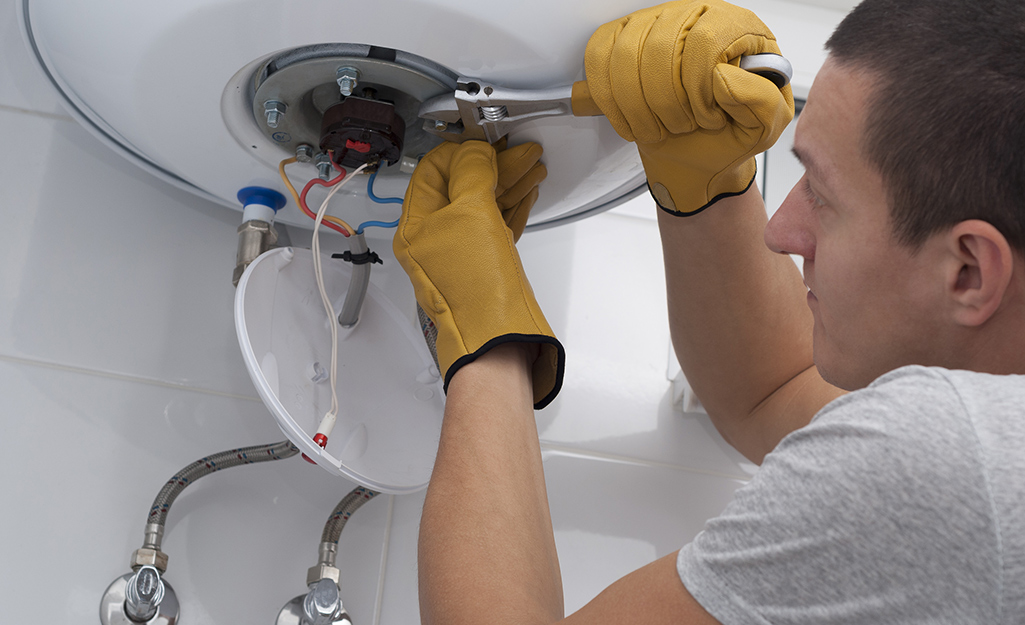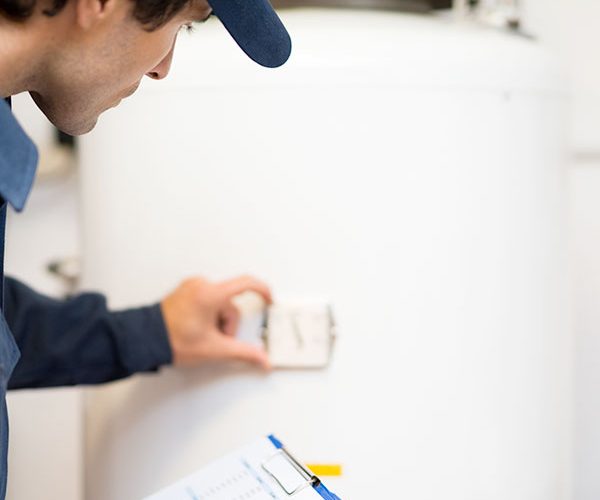The article below in relation to Is Your Water Heater Leaking? is fairly compelling. Read it for yourself and decide what you think of it.

A water heater is just one of the most vital fundamental appliances that can be located in a home. With hot water heater, you don't require to go through the stress and anxiety of heating water by hand every time there is a requirement to wash, do the laundry, or the meals. Nonetheless, there is always an opportunity that your hot water heater would certainly act up just like the majority of mechanical devices.
It is important to note any little breakdown and tackle it rapidly before things leave hand. The majority of times, your water heater starts to malfunction when there is an accumulation of debris as a result of continual usage. As a preventative measure, regular flushing of your water heater is advised to prevent debris buildup and also avoid useful failure.
Usual water heater emergency situations and also how to manage them
Too little hot water
Dealing with an inadequate supply of warm water can be frustrating. It may be that the water heater can not sustain the warm water need for your apartment. To handle this issue, you might try to readjust your heating system's temperature level dial and await a few minutes. You can ask for the aid of a professional plumber if the issue lingers. Alternatively, you might update your hot water heater to one with a larger capacity.
Varying water temperature level.
Your hot water heater might start producing water of various temperature levels normally ice chilly or scalding hot. In this scenario, the first thing you do is to make certain that the temperature level is set to the wanted degree. If after doing this, the water temperature maintains changing throughout showers or various other activities, you could have a damaged thermostat. There may be a need to change either the thermostat or the heating system of your water heater.
Leaking water heater container.
A dripping storage tank could be a sign of rust. It might trigger damages to the floor, wall surface and also electric gadgets around it. You could also be at threat of having your home flooded. In this situation, you ought to turn off your hot water heater, allow it to cool, and meticulously search for the resource of the problem. At times, all you require to do is to tighten a few screws or pipe connections in cases of small leakages. Yet if this doesn't work and the leak persists, you could require to utilize the services of a specialist for a suitable replacement.
Stained or odiferous water
When this happens, you need to recognize if the problem is from the water or the storage tank resource. If there is no funny scent when you run cold water, after that you are certain that it is your water heating system that is defective. The smelly water can be caused by corrosion or the buildup of microorganisms or debris in the water heater storage tank.
Verdict
Some property owners ignore little caution and also minor faults in their water heater system. This only results in additional damage and a possible complete breakdown of your appliance. You should deal with your hot water heater mistakes as quickly as they come up to avoid more expenditures and also unnecessary emergency troubles.
With water heaters, you do not need to go through the stress and anxiety of home heating water manually every time there is a need to take a bathroom, do the laundry, or the recipes. It may be that the water heater can not support the warm water demand for your house. Your water heating unit could start creating water of different temperatures generally ice cool or hot hot. If there is no amusing scent when you run cold water, after that you are certain that it is your water heater that is defective. The odiferous water can be caused by rust or the build-up of germs or debris in the water heater storage tank.
Water Heater Burst: Why This Happens And What To Do Next
Water Heater Explosion Warning Signs
Since storage water heaters are made of metal and store large volumes of heated water, they carry an increased risk of leaking or even exploding as they begin to rust at the fittings and seams over time. If the thermostat controlling the water temperature within the tank is faulty, or if mineral buildup inside the water heater prevents the thermostat from sensing the water’s temperature correctly, the water could become overheated. This will expand its volume within the tank, causing it to press at the tank’s fittings and seams. If these fittings and seams are rusted or corroded, the pressure could result in a leak or even an explosion.
Here are some risk factors and warning signs of an increased risk of water heater leak or explosion:
Your water heater is more than 10 years old. Your water heater makes clanking, banging or rumbling noises as it heats up, indicating that sediment has built up and hardened inside the tank. There is visible rust on the outside of the water heater, especially located at the pipe fittings or the seams that run down the tank. There is rusty water coming from your water heater, indicating that there may be rust building up inside. Your water heater is leaking, which could indicate either a crack somewhere in the tank or a malfunctioning temperature-and-pressure (T&P) relief valve. What To Do When Water Heater Leaks
If you find water dripping or seeping out of your water heater, or pooling around it, it means your water heater is leaking. If you find a leak, it may be best to call a plumbing professional to diagnose the problem and determine how best to handle it. If you choose to tackle it on your own, there are a few things you can do.
TURN OFF THE POWER
Next, shut off the power to the hot water tank at your home’s electrical breaker box. If you don’t shut off the power, the heating elements within the tank could continue to stay hot, which could pose a fire risk.
If you have a gas-powered water heater, you’ll also need to shut off the gas line leading into the tank.
FIND THE LEAK
Now it’s time to determine where the leak is coming from. Likely locations are the T&P valve, the drain valve or one of the pipes or fittings that feed into the top of the tank. If you see any rust or corrosion on the outside of your water heater’s tank, pipes or fittings, these could also be the source of the leak.
REPAIR THE LEAK
Once you determine the source of your water heater leak, you’ll have a better idea of what steps you need to take to fix the problem. It may be a simple fix—such as using a wrench to tighten fittings or replacing the T&P valve—but it may be something more complicated. You may even need to drain the tank, remove the water heater and install a new one.
https://www.abchomeandcommercial.com/blog/water-heater-burst/

As an enthusiastic reader about Common Hot Water Heater Problems, I thought sharing that editorial was smart. Are you aware of somebody who is excited by the topic? Be sure promote it. We recognize the value of reading our article about Is Your Water Heater Leaking?.
For fast action, contact!